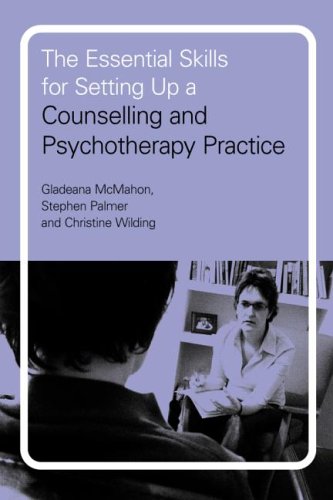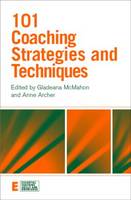Crouching Tiger
When you type the word 'anger' into Google you get 54,400,000 hits; when you refine the search to newspaper articles you get 1,780.000. Open the newspapers, listen to the radio, or watch the television, and the theme of anger is mentioned daily. Anger at major attacks such as 9/11, at disputes by workers who feel they are not being treated fairly, at environmental issues, at governments all over the world who are seen as acting unfairly; when you walk down the street it is not unusual to hear a loud exchange between two individuals; most of us have seen the look on someone's face as they try to control frustration at a ticket machine that isn't working. There are even television programmes about young children whose angry tantrums are so severe that the parents have to turn to experts to help get some control back into their harassed lives.
According to an article in the Sunday Times Magazine in July 2006, 45% of us regularly lose our temper at work, 64% of Britons working in an office have experienced office rage, 27% of nurses have been attacked at work, 33% of Britons are not on speaking terms with their neighbours, 1 in 20 of us has had a fight with the person living next door. UK airlines reported 1486 significant or serious acts of air rage in a year - a 59% increase over the previous year. The UK has the second-worst incidence of road-rage in the world, after South Africa; more than 80% of drivers say they have been involved in road-rage incidents; 25% have committed an act of road-rage themselves. 71% of internet users admit to having suffered net-rage. 50% of us have reacted to computer problems by hitting our PC, hurling parts of it around, screaming or abusing our colleagues.
You can be forgiven for thinking that we live in a world full of mad, aggressive, unpleasant and potentially dangerous individuals.
However, is anger really that bad or is it an appropriate response if used wisely? Anger gets things done. Laws have come into being or been changed because individuals have felt angry due to a sense of injustice or unfairness and have taken it upon themselves to bring about such change. In this sense anger is an appropriate emotion and one which individuals and society in general can benefit from. Anger is a human emotion and as such is neither good nor bad, it simply is. Remember the last time you were angry and you will probably become aware that alongside the rage there was a tremendous surge of energy. Those who know how to get the best from that energy without engaging in destructive behaviours - either towards themselves or others - have a wonderful energy bank to draw from. Excessive anger can damage our health, our relationships and our work prospects, while the productive use of anger can enhance our lives, our relationships and society in general.
If anger is neither good nor bad, then how do some people know how to use their anger effectively, while others allow it to get out of control? Recent studies suggest a number of reasons why some individuals find this difficult to do. Genetic predisposition may have an influence; family history plays its part although no one is sure how much is genetic and how much learned behaviour: stressful life events can turn even mild-mannered Clark Kent into a raging monster; poor coping skills often leave people frustrated and frustration can soon turn to anger. Individual personality suggests that your classic Type 'A': overachieving, easily bored and prone to overworking individual, is more at risk than the more laid back Type 'B'. A lack of social support has also been identified as a factor, as has mental illness and some physical illnesses such as diabetes.
If you are unlucky enough to be one of those people who finds it hard to control your anger or if you have to deal with such individuals you are likely to want to know if it's possible to change. The good news is that unless the individual is a psychopath the answer is yes.
There are now many studies supporting the view that the best treatment for anger is Cognitive Behavioural Therapy (CBT). The National Institute for Clinical Excellence and the NHS have both recommended CBT as the treatment of choice when working with conditions such as depression, anxiety and anger. In one study undertaken by Richard Beck and Ephrem Fernandez on the effectiveness of CBT in relation to anger it was found that the average CBT recipient was better off than 76% of untreated subjects in terms of anger reduction. In a number of additional studies CBT was shown to have a marked effect in reducing anger and its consequent problems.
In more recent years, many of the skills associated with CBT have been brought into the realm of coaching under what is called Cognitive Behavioural Coaching (CBC), pioneered by individuals such as Stephen Palmer and Windy Dryden, as well as by Michael Neenan and myself.
Depending on the severity and individual circumstances faced by individuals either CBT or CBC are able to help them take control of what often seems like an insurmountable problem.
Cognitive Behavioural approaches work in a holistic manner, by examining situations, thoughts, emotions, physical feelings and actions. By considering how we think about ourselves, the world and other people and exploring what we do and how this affects our thoughts and feelings individuals learn what fuels their anger, what triggers it and what strategies they need to deal with it. CBT is what is called an 'evidence based' therapy in that since its inception in the late 1950s CBT has been one of the only therapies to insist on opening itself up to studies to determine which skills and ways of working are best when attempting to help people change. Some of the strategies are as simple as learning to breathe properly, distracting oneself from a negative train of thought and counting to ten, while others are far more complex and explore the belief systems of the individual to unearth the core of that individual's self-defeating thinking and subsequent behaviour.
Anger related problems need no longer spoil people's lives. Providing an individual is prepared to do the work and follow the strategies anger can become a useful resource and not something to be feared.
According to an article in the Sunday Times Magazine in July 2006, 45% of us regularly lose our temper at work, 64% of Britons working in an office have experienced office rage, 27% of nurses have been attacked at work, 33% of Britons are not on speaking terms with their neighbours, 1 in 20 of us has had a fight with the person living next door. UK airlines reported 1486 significant or serious acts of air rage in a year - a 59% increase over the previous year. The UK has the second-worst incidence of road-rage in the world, after South Africa; more than 80% of drivers say they have been involved in road-rage incidents; 25% have committed an act of road-rage themselves. 71% of internet users admit to having suffered net-rage. 50% of us have reacted to computer problems by hitting our PC, hurling parts of it around, screaming or abusing our colleagues.
You can be forgiven for thinking that we live in a world full of mad, aggressive, unpleasant and potentially dangerous individuals.
However, is anger really that bad or is it an appropriate response if used wisely? Anger gets things done. Laws have come into being or been changed because individuals have felt angry due to a sense of injustice or unfairness and have taken it upon themselves to bring about such change. In this sense anger is an appropriate emotion and one which individuals and society in general can benefit from. Anger is a human emotion and as such is neither good nor bad, it simply is. Remember the last time you were angry and you will probably become aware that alongside the rage there was a tremendous surge of energy. Those who know how to get the best from that energy without engaging in destructive behaviours - either towards themselves or others - have a wonderful energy bank to draw from. Excessive anger can damage our health, our relationships and our work prospects, while the productive use of anger can enhance our lives, our relationships and society in general.
If anger is neither good nor bad, then how do some people know how to use their anger effectively, while others allow it to get out of control? Recent studies suggest a number of reasons why some individuals find this difficult to do. Genetic predisposition may have an influence; family history plays its part although no one is sure how much is genetic and how much learned behaviour: stressful life events can turn even mild-mannered Clark Kent into a raging monster; poor coping skills often leave people frustrated and frustration can soon turn to anger. Individual personality suggests that your classic Type 'A': overachieving, easily bored and prone to overworking individual, is more at risk than the more laid back Type 'B'. A lack of social support has also been identified as a factor, as has mental illness and some physical illnesses such as diabetes.
If you are unlucky enough to be one of those people who finds it hard to control your anger or if you have to deal with such individuals you are likely to want to know if it's possible to change. The good news is that unless the individual is a psychopath the answer is yes.
There are now many studies supporting the view that the best treatment for anger is Cognitive Behavioural Therapy (CBT). The National Institute for Clinical Excellence and the NHS have both recommended CBT as the treatment of choice when working with conditions such as depression, anxiety and anger. In one study undertaken by Richard Beck and Ephrem Fernandez on the effectiveness of CBT in relation to anger it was found that the average CBT recipient was better off than 76% of untreated subjects in terms of anger reduction. In a number of additional studies CBT was shown to have a marked effect in reducing anger and its consequent problems.
In more recent years, many of the skills associated with CBT have been brought into the realm of coaching under what is called Cognitive Behavioural Coaching (CBC), pioneered by individuals such as Stephen Palmer and Windy Dryden, as well as by Michael Neenan and myself.
Depending on the severity and individual circumstances faced by individuals either CBT or CBC are able to help them take control of what often seems like an insurmountable problem.
Cognitive Behavioural approaches work in a holistic manner, by examining situations, thoughts, emotions, physical feelings and actions. By considering how we think about ourselves, the world and other people and exploring what we do and how this affects our thoughts and feelings individuals learn what fuels their anger, what triggers it and what strategies they need to deal with it. CBT is what is called an 'evidence based' therapy in that since its inception in the late 1950s CBT has been one of the only therapies to insist on opening itself up to studies to determine which skills and ways of working are best when attempting to help people change. Some of the strategies are as simple as learning to breathe properly, distracting oneself from a negative train of thought and counting to ten, while others are far more complex and explore the belief systems of the individual to unearth the core of that individual's self-defeating thinking and subsequent behaviour.
Anger related problems need no longer spoil people's lives. Providing an individual is prepared to do the work and follow the strategies anger can become a useful resource and not something to be feared.
By Gladeana McMahon

View more details for Gladeana McMahon
Handbook of Counselling: Second Edition
- Paperback
Client Assessment
- Paperback
101 Coaching Strategies and Techniques
- Paperback










